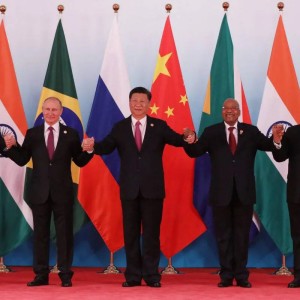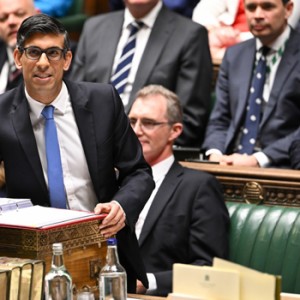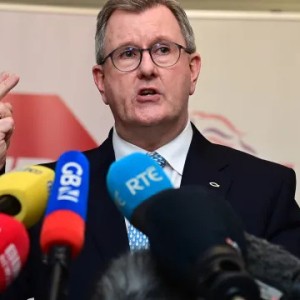Russia fired rockets at towns to the west of Europe's largest nuclear power plant in southern Ukraine early on Monday while the capital Kyiv banned rallies this week to commemorate independence from Soviet rule for fear of Russian attacks.
Artillery and rocket fire close to the Zaporizhzhia nuclear reactor complex, on the Russian-occupied south bank of the Dnipro River, has stirred fears of a nuclear disaster and calls for the surrounding area to be demilitarised.
Ukraine and Russia have traded blame for the repeated shelling, some of which has grazed the plant. It was seized by Russian forces shortly after they invaded Ukraine in February but is still run mainly by Ukrainian technicians.
Overnight Russian rocket salvoes into Nikopol, across the Dnipro from Russian-occupied Enerhodar where the Zaporizhzhia plant is situated, and nearby Krivyi Rih and Synelnykovsky districts injured at least four people, regional Governor Valentyn Reznichenko wrote on Telegram on Monday.
Ukraine also reported a Russian missile strike on Voznesensk, to the southwest and not far from the country's second-largest atomic power station.
On Sunday, U.S. President Joe Biden, British Prime Minister Boris Johnson, German Chancellor Olaf Scholz and French President Emmanuel Macron held a phone call stressing the importance of ensuring the safety and security of Ukraine's nuclear installations.
They also welcomed recent discussions on enabling a mission by the U.N. nuclear watchdog agency to Zaporizhzhia, while reaffirming their "steadfast commitment" to support Ukraine in the face of Russia's invasion.
Russia began what it called a "special military operation" on Feb. 24 to demilitarise its smaller neighbour and protect Russian-speaking communities. Ukraine and its Western backers accuse Moscow of waging an imperial-style war of conquest.
The conflict, Europe's biggest since World War Two, has flattened towns and cities, killed thousands, forced millions to flee and deepened a geopolitical chasm between Russia and the West.
Since Ukraine repelled a Russian attempt to capture Kyiv early in the war, the fighting has been concentrated in the east and south where frontlines have been largely static for weeks.
INDEPENDENCE DAY CELEBRATIONS BANNED
Ukrainian President Volodymyr Zelenskiy has warned of the risk of more severe attacks ahead of Ukraine's 31st anniversary on Wednesday of independence from Russian-dominated Soviet rule.
Local authorities in Kyiv have banned large public events, rallies and other gatherings related to the anniversary in the capital from Monday until Thursday due to the possibility of rocket attacks, according to a document published by the Kyiv military administration signed by its head Mykola Zhyrnov.
Zelenskiy said Moscow could try "something particularly ugly" in the run-up to Wednesday, which also marks half a year since Russia invaded.
Zelenskiy said he had discussed "all the threats" with his French counterpart and word had also been sent to other leaders including Turkish President Tayyip Erdogan and U.N. Secretary-General Antonio Guterres.
"All of Ukraine's partners have been informed about what the terrorist state can prepare for this week," Zelenskiy said in his nightly video address, referring to Russia.
The Financial Times, in an article published on Sunday, quoted Gennady Gatilov, Moscow's ambassador to the United Nations in Geneva, as saying Erdogan had tried to facilitate dialogue.
But he dismissed speculation about talks between Zelenskiy and Russian President Vladimir Putin, saying there was no "practical platform for having this meeting", the report said.
SMALL RUSSIAN ADVANCE IN SOUTH
In its morning update on Monday, Ukraine's General Staff said Russian forces had made incremental advances into the Blagodnatne area in the direction of the city of Mykolaiv, a major target in the south.
Russia was also trying to regain momentum towards Pisky, Bakhmut and Kramatorsk, key towns in Donetsk province which, along with neighbouring Luhansk, captured by Moscow's forces earlier in the summer, comprise the eastern Donbas region.
Russian artillery and multiple rocket launcher systems hammered the areas of Soledar, Zaytseve and Bilogorivka near Bakhmut, the Ukrainian military command's update said.
At least two civilians were killed, the regional administration said. Russia denies targeting civilians.
Reuters was not able to independently verify the battlefield reports.
In Russia, authorities were investigating a suspected car bomb attack outside Moscow that killed the daughter of Alexander Dugin, an ultra-nationalist Russian ideologue who advocates Russia absorbing Ukraine.
While investigators said they were considering "all versions" when it came to establishing who was responsible, the Russian Foreign Ministry speculated there could be a link to Ukraine, something a Zelenskiy adviser dismissed.
"Ukraine, of course, had nothing to do with this because we are not a criminal state, like the Russian Federation, and moreover we are not a terrorist state," Mykhailo Podolyak said on Ukrainian TV.
Source: Reuters
Image Source: Cyprus Mail














